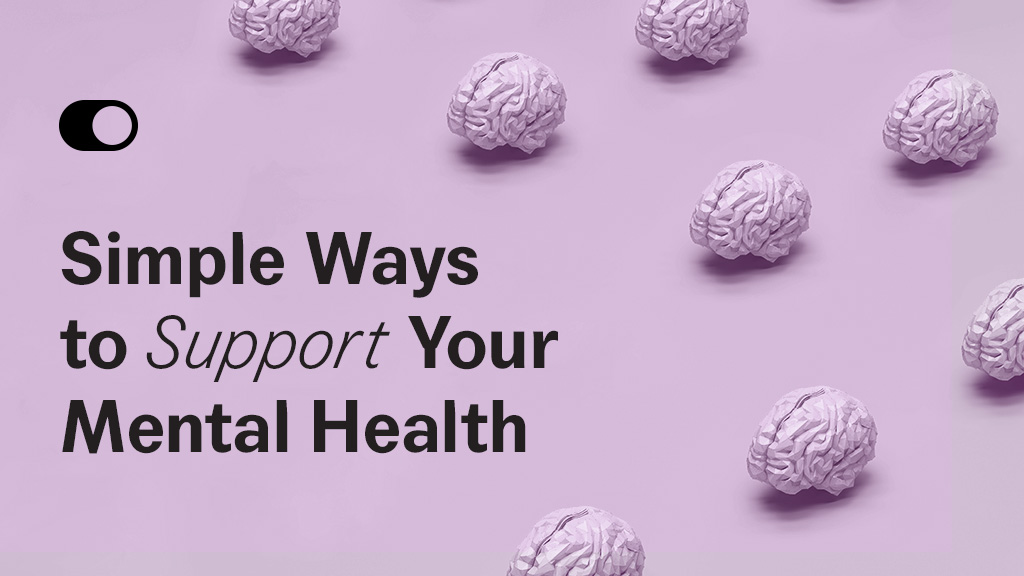
Simple Ways to Support Your Mental Health
Mental Health: What You Need to Know
Mental health is just as important as physical health for your overall wellbeing. And just like with your body, lots of things can impact your mental wellness. Whether day-to-day stress has become overwhelming, you’re dealing with unexpected life changes, or you just don’t feel like yourself, it’s normal to be anxious and depressed sometimes. Luckily, there are some simple steps you can take to help manage stress levels and care for your mental health.
Common Struggles
We all get overwhelmed from time to time. This can show up in different ways for different people. Or even in different ways for you, personally, at different times in your life.
Some common mental health struggles are:
Self-Care Strategies
Taking care of yourself is one of the best ways to support your mental health on a daily basis. We have some tried and true practices you can use. But we know that it can be difficult to manage stress on your own. So, if you feel like you need help, you may want to connect with a therapist or mental health provider. They can work with you to create personalized strategies for your mental wellbeing.
Here are some of our favorite self-care strategies to try at home:
Frequently Asked Questions
How can I tell if I’m dealing with a mental health issue?
If you’re feeling overwhelmed, anxious, depressed, or like you just don’t feel like yourself, those can be signs you’re experiencing a mental health struggle.
What are some simple self-care strategies to support mental health?
Some effective self-care strategies include getting outside, moving your body, meditating, practicing good sleep hygiene, spending time with loved ones, journaling, making value-driven decisions, nurturing positive thoughts, and developing happiness habits.
Why is it important to connect with a therapist or mental health provider?
If you’re having trouble managing your mental health on your own, working with a professional can help you create personalized strategies and get the support you need.
How much time do I need to dedicate to self-care each day?
Even just a few minutes a day spent on self-care activities can make a big difference. The key is finding what works best for your lifestyle and sticking to it.
Can self-care really help manage major mental health conditions?
While self-care is important, it’s not a replacement for professional treatment for more serious mental health issues. It’s meant to be a complementary practice.
How do I know if I should seek professional help for my mental health?
If your mental health struggles are interfering with your daily life and you’re having trouble managing them on your own, that’s a good sign you should connect with a provider.